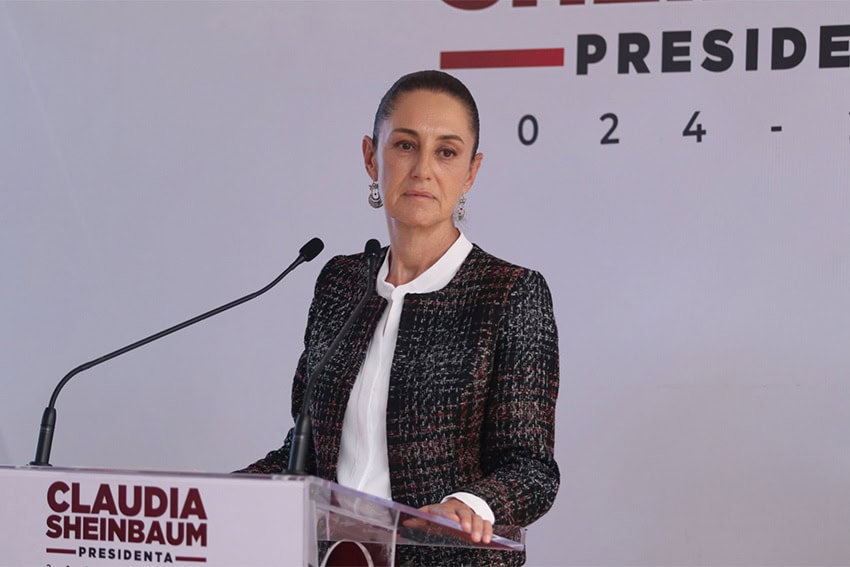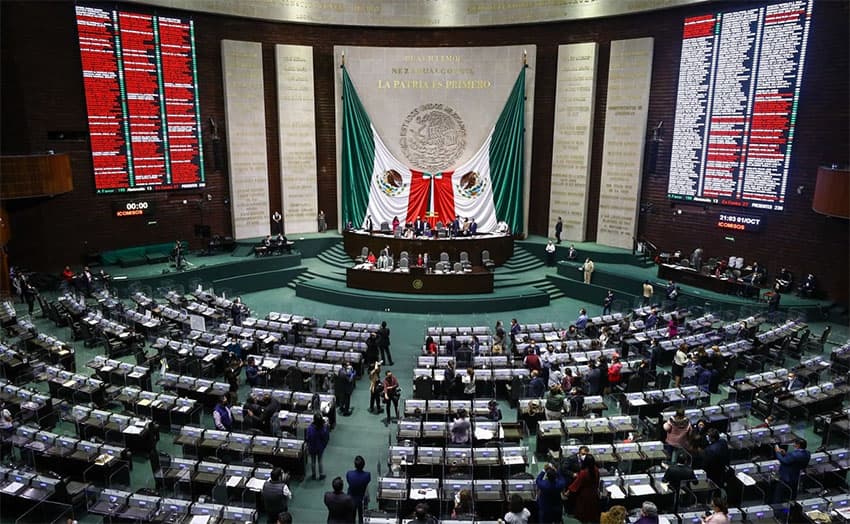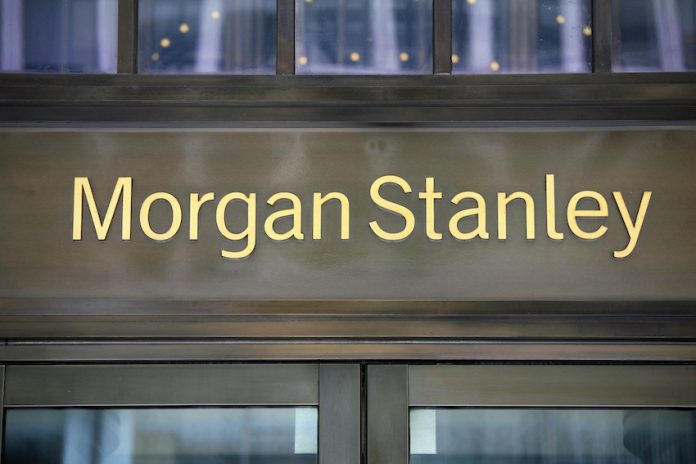New York-based investment bank Morgan Stanley has downgraded its investment outlook for Mexico, issuing an “underweight” warning on Mexican shares due to concern over the federal government’s proposed judicial reform.
In a “Latin America Model Portfolio” report published on Tuesday, the bank said it was downgrading Mexico to underweight “following the judicial reform proposal the executive sent to Congress.”
La reforma al Poder Judicial lleva a Morgan Stanley a recomendar reducir su exposición a México así como los cuellos de botella que tiene el “near shoring”. pic.twitter.com/Yl33HHStvn
— Rodrigo Pacheco (@Rodpac) August 20, 2024
The underweight investment outlook is an effective “sell” recommendation for Mexican stocks, Reuters reported.
President Andrés Manuel López Obrador sent the judicial reform proposal to Congress in February, while the ruling Morena party submitted a modified version of the bill to the Constitutional Points Committee of the lower house last Friday.
If the proposed constitutional reform is approved, Mexicans will be able to directly elect judges, including Supreme Court justices, starting next year. The sitting president, the Congress and the judiciary itself would nominate candidates.
Opponents of the proposal argue that it would jeopardize the independence of the judiciary and reduce checks and balances on executive power. Judicial elections would coincide in some cases with political elections, a situation that Morgan Stanley and others believe could lead to politicization of the judiciary.
In its report, Morgan Stanley said it believes “replacing the judicial system should increase risk, Mexico’s risk premia and limit capex,” or capital expenditure.
“That’s a problem as nearshoring is reaching key bottlenecks,” the bank said, referring to constraints on foreign investment in Mexico due to factors such as insufficient infrastructure or inputs (water, gas, electricity etc).
Morgan Stanley also said that the judicial reform “presents risks” to Mexico’s “investment narrative.”
Late last year, JPMorgan Chase CEO Jamie Dimon and Thor Equities founder and Chairman Joseph Sitt lauded Mexico as an investment destination. Dimon said that Mexico “might be” the number one investment opportunity in the world, while Sitt asserted that the country had become the “alternative” to China and represents a “golden” opportunity for investment.
For her part, president-elect Claudia Sheinbaum said in June that “investors in Mexico have “nothing to worry about.”

However, there is no doubt that the judicial reform proposal and other constitutional bills that López Obrador sent to Congress in February — and which Sheinbaum supports — are causing concern among investors.
The Mexican peso has been a prominent casualty of the concern. It was trading at around 19.20 to the US dollar at 9:30 a.m. Mexico City time Wednesday, compared to 17.01 on the Friday before the comprehensive victories of Sheinbaum and Morena in the elections held on the first Sunday in June.
Morgan Stanley’s recommended portfolio changes
Morgan Stanley recommended reducing exposure to some Mexican stocks and eliminating others from investment portfolios altogether.
“We lower the weight of key holdings in the country such as Walmex [Walmart de México], Femsa and Coca-Cola Femsa, and delete Kimberly Clark México, Laureate and Quálitas,” the bank said.
Morgan Stanley made no changes to its recommendations for a number of Mexican companies including América Móvil, Cemex, Fibra Prologis, Grupo México, Banorte and Cuervo.
Judicial reform proposal weighs on the peso
The peso depreciated to as low as 19.31 to the US dollar early Wednesday before strengthening slightly. That rate represented a depreciation of around 1.6% compared to the peso’s closing position on Tuesday.
Gabriela Siller, director of economic analysis at Banco Base, said on X that the depreciation of the currency is “directly related to greater risk aversion about Mexico due to the possible overrepresentation of Morena and allied parties [in Congress] and the possibility of the approval of the reform to the judicial power.”

Lawmakers elected on June 2 will assume their positions on Sept. 1, exactly one month before Sheinbaum will be sworn in as Mexico’s first female president.
Morena and its allies, the Labor Party and the Ecological Green Party of Mexico, will have a two-thirds majority in the Chamber of Deputies, allowing them to approve constitutional reform proposals without the support of opposition lawmakers.
Other reform proposals put forth by López Obrador have also generated concern, including one that aims to disband a number of government autonomous agencies and another that seeks to incorporate the National Guard into the military.
The Morena-led coalition will need to find a few extra votes to get constitutional reform proposals through the Senate, as its numbers in the upper house will be just short of a supermajority.
Siller also commented on the judicial reform proposal on Tuesday.
“The judicial strike will have an impact,” she wrote on X in reference to the decision by court workers and judges to stop work to protest the reform proposal.
“However, the approval of the reform to the judicial power will have a much greater impact on the economy by slowing down fixed investment [and] the hiring of personnel, and moving Mexico away from the nearshoring opportunity,” Siller said.
With reports from El Economista and Reuters
